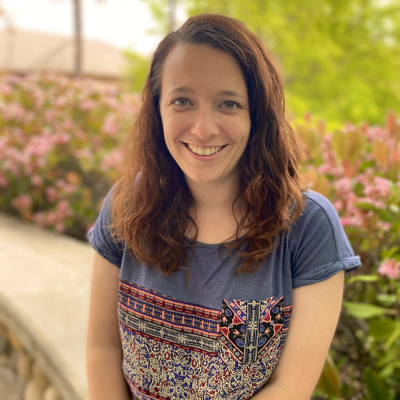This Fourth of July, our society sits perhaps more grounded than it has in the past three years. As we continue to emerge from the pandemic, the cycles of fear, uncertainty, and grief have shifted aside to make room for barbecues, pool parties, and mattress sales. There’s a palpable desire to move forward from the tragedies that the pandemic years held, and yet somewhere inside us still is three years of national pain waiting to heal.
When I think about the waves of lockdowns, mass shootings, and political violence, my mind often wanders to a news interview I watched after last year’s hostage situation in Colleyville, Texas, featuring several clergy members supporting the Jewish community. “God was with them in that room,” they said, “God was with them.” While I appreciate multifaith solidarity, when I heard those words, I couldn’t imagine anything less true, in that moment or in any of our national horrors. God was with the hostages? And the mass shooting victims? And the intubated? When I reflect on moments of trauma in my own life, one of the things I can recall most clearly is the tangible feeling of God’s absence.
This may seem challenging to reconcile with Jewish tradition; God in the Torah is ever-present, sometimes overwhelmingly so. But if we walk forward with our ancestors, we find that subsequent eras in Jewish text are not always connected to the Divine. Generations of exile and destruction, it turns out, yield a relationship with God that is tenuous and tension-filled, often marked by absence. Parts of Psalms, Lamentations, and numerous prophetic texts feature people trapped in their despair, professing that God is nowhere to be found.
What do we do with this? How do we go forward, religious in a world so broken that it necessitates acknowledging where God isn’t?
Find more commentaries on Parshat Pinchas.
Enter the prophet Elijah. After tricking worshippers of Ba’al into revealing that their god is fake, he further humiliates them and is forced to flee for his life. In this week’s haftarah (I Kings 18:46-19:21), Elijah is in such a state of despair that he is convinced a storm is following him, even though the sky is clear. He isolates himself in a cave atop a mountain, and, feeling trapped, begs God for death. And a storm indeed descends:
A great strong wind split mountains and shattered rocks before God. But God was not in the wind. And after the wind, an earthquake. But God was not in the earthquake. And after the earthquake, a fire. But God was not in the fire. And after the fire, a still small voice.
And then something inside Elijah shifts. He steps towards the entrance of the cave, and the voice continues: “Elijah, what brings you to this place?”
Elijah, what is this despair?
If this “still small voice” sounds familiar, it is:
וּבְשׁוֹפָר גָּדוֹל יִתָּקַע וְקוֹל דְּמָמָה דַקָּה יִשָׁמַע
And in the great sounding of the shofar, a still small voice is heard.
On Rosh Hashanah and Yom Kippur, when we are tasked with confronting our own deaths, we recite this line from Unetaneh Tokef, leaning into the uncertainty and utter smallness of our lives. After we somberly reflect on our pain, we’re carried to a place where we can acknowledge teshuva, tefillah, and tzedakah as ways to ground ourselves and move from despair to hope.
Sign up to receive (M)oral Torah in your inbox each week.
Perhaps it is for this reason that Elijah’s story is paired with Parshat Pinchas, which, resonant to our time, takes place after a long run of political uprisings, ethnic violence, and plague. Ten verses into our parshah, in the aftermath of last week’s chaotic climax, we read:
When the plague was over, THE ETERNAL said to Moses and to Eleazar son of Aaron the priest: “Take a census of the whole Israelite company…” (Numbers 26:1-2)
During this census, we meet Tzelophachad’s daughters, who strive to change inheritance laws for women. God’s voice carries the people from revolution to revelation, asking everyone to take stock of what they have so that society can imagine a future beyond wandering.
Here, God is not in the plague but in the census, just as God is not in the shofar blast but in the silence after, just as God is not in the wind or the earthquake or the fire, but in the quiet moment when Elijah finally lifts his head.
We find in our tradition that God dwells not in the destruction, but in the moment right before rebuilding. This Fourth of July, may we be like Elijah, attuned to the still small voice speaking in the moment after we have been trapped in our pain, quietly waiting to walk with us into the next opportunity to move forward.
Julie Fishbach is a former teacher and comedian, and current rabbinical student entering her third year at HUC in Los Angeles. She is a T’ruah summer fellow this year and was a T’ruah Israel Fellow in 2021-22.


